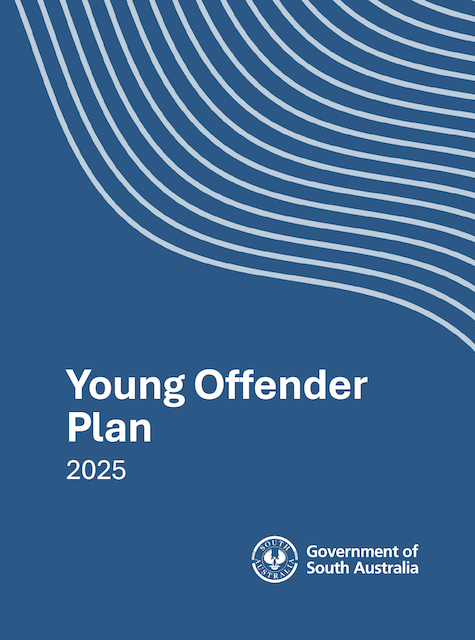While South Australia has relatively low levels of crime, we know that more work is needed.
South Australia has the second lowest rate of youth offenders across Australia, after the ACT. However over the past financial year, 20 young people were responsible for roughly 11 per cent of all matters before the Youth court, and responsible for a disproportionate rate of offending.
What the government is doing
The State Government is considering a number of measures to ensure the justice system is able to effectively manage this issue and that there are significant consequences for serious repeat young offenders. This includes:
- funding specialised initiatives to target recidivism and provide effective diversions from the criminal justice system
- convening a stakeholder rountable with industry and sector leaders
- referring the Bail Act to the South Australian Law Reform Institute for review.
Read the Young Offenders Plan (PDF, 795.8 KB) for more details.
Changes to legislation:
The Statutes Amendment (Recidivist Young Offenders) Bill 2025 was introduced to State Parliament in October 2025.
The Statutes Amendment (Recidivist Young Offenders) Bill 2025 will reform existing South Australian bail and sentencing laws applying to young offenders.
While statistics show South Australia has the second lowest rate of youth offenders across Australia, we know a small number of serious repeat young offenders are responsible for a disproportionate level of offending.
The proposed reforms are tailored to address this small cohort of young offenders, alongside the State Government’s investment in intervention programs.
What is the current legislation?
Currently, youth crime is addressed in South Australia through the following legislation:
Suggested amendments
In response to the Government’s Young Offender Plan, we’re proposing to amend legislation to implement sentencing and bail reforms. These reforms are aimed at those who repeatedly reoffend, with a focus on offending which is serious in nature or results in harm to the community.
The changes include:
- reforms to ensure the recidivist young offender scheme is fit for purpose
- tougher bail laws for recidivist young offenders
- strengthened sentencing laws for youths who have demonstrated a pattern of repeated illegal behaviour.
The Government has also committed, as part of the Young Offender Plan (PDF, 795.8 KB), to a $3 million investment in programs to support young offenders to break the cycle of re-offending.
Access the complete Bill (PDF, 194.1 KB).
The Criminal Law Consolidation (Street Gangs) Amendment Bill 2025 passed Parliament in November 2025.
The Criminal Law Consolidation (Street Gangs) Amendment Bill 2025 will reform existing legislation to address serious and organised crime taking place across the state.
Whilst street gangs may commit similar offences to other crime groups, they tend to have a less formal structure, and a fluid membership which can include youths.
What is the current legislation?
Serious and organised crime is currently addressed in South Australia through the Serious and Organised Crime (Control) Act 2008 (SOCCA) and Part 3B of the Criminal Law Consolidation Act 1935 (CLCA).
However, these laws were designed primarily to deal with Outlaw Motorcycle Gangs (OMCGs). The Bill is based on existing legislation that targets OMCGs but is tailored for the differing structure and membership of street gangs.
Suggested amendments
To target and disrupt the criminal activities of street gangs, the Bill seeks to amend the CLCA.
The proposed measures in the Bill will:
- insert an express definition of a street gang;
- allow for the Commissioner of Police to make an application to the Supreme Court to seek a declaration that a group is a “declared street gang”;
- allow for the Commissioner of Police to make an application to the Supreme Court, or Youth Court in relation to a youth, for a street gang control order in relation to a specified person;
- empower the Supreme Court and Youth Court to impose certain conditions on a person who is subject to a street gang control order;
- create a new offence for an adult who recruits another person into a street gang and expand the existing offence of an adult who recruits a child to engage in criminal activity in section 267AB of the CLCA;
- create a new offence to criminalise associations between members of declared organisations, members of criminal organisations and the participants of street gangs; and
- create a new offence for the participant of a street gang to be present at a prescribed place or event that has been declared as such under section 83GA of the CLCA.


